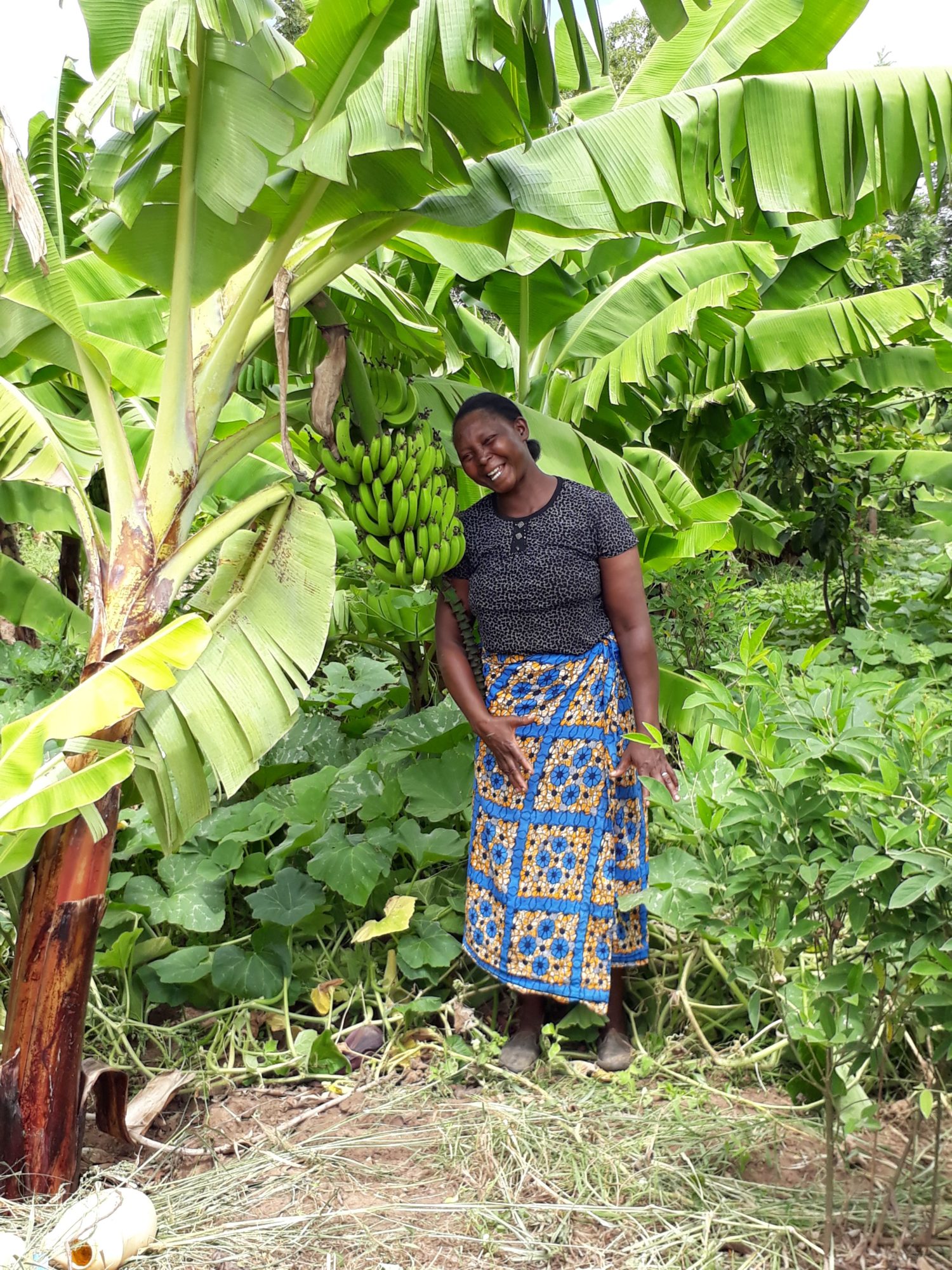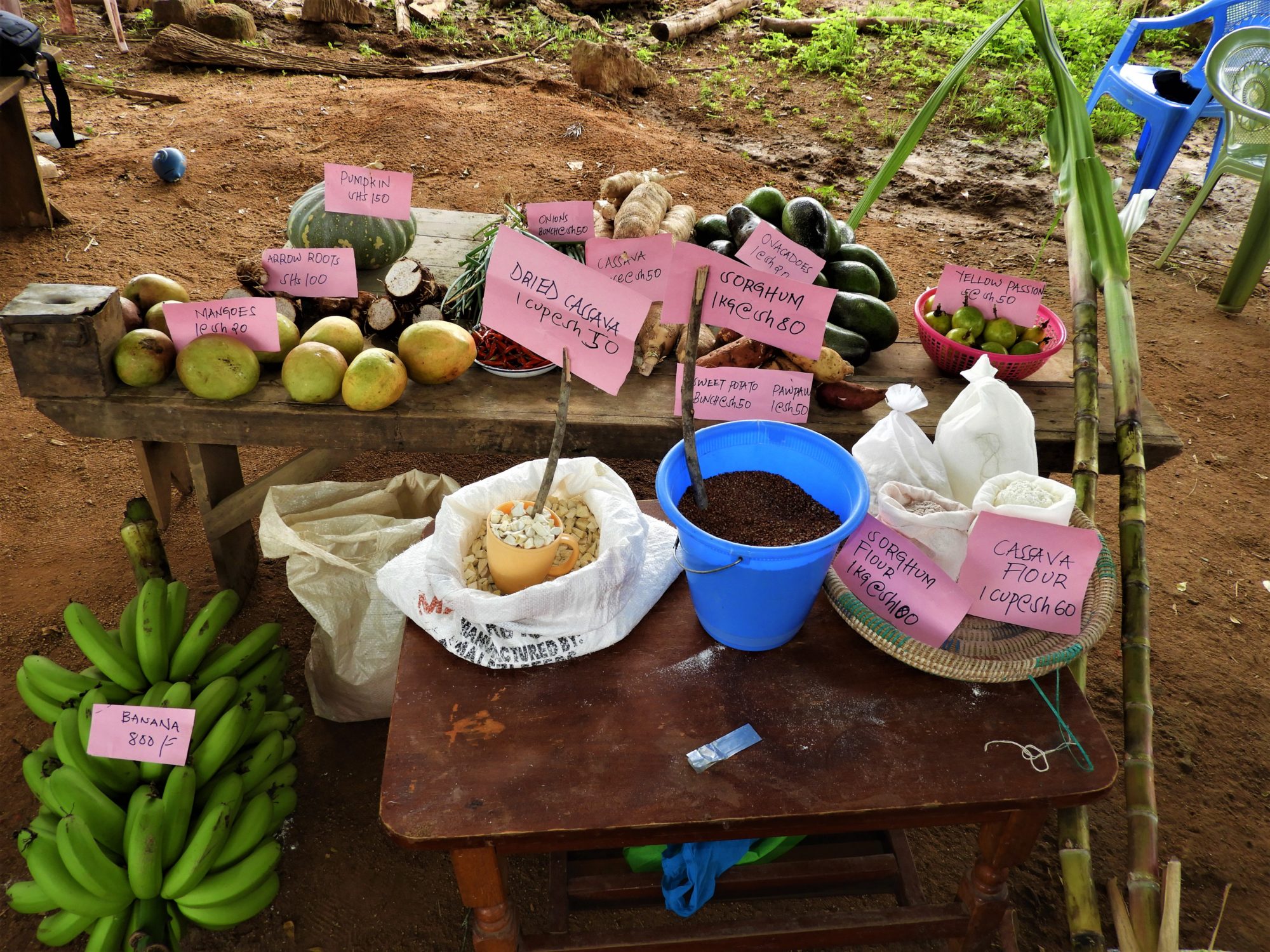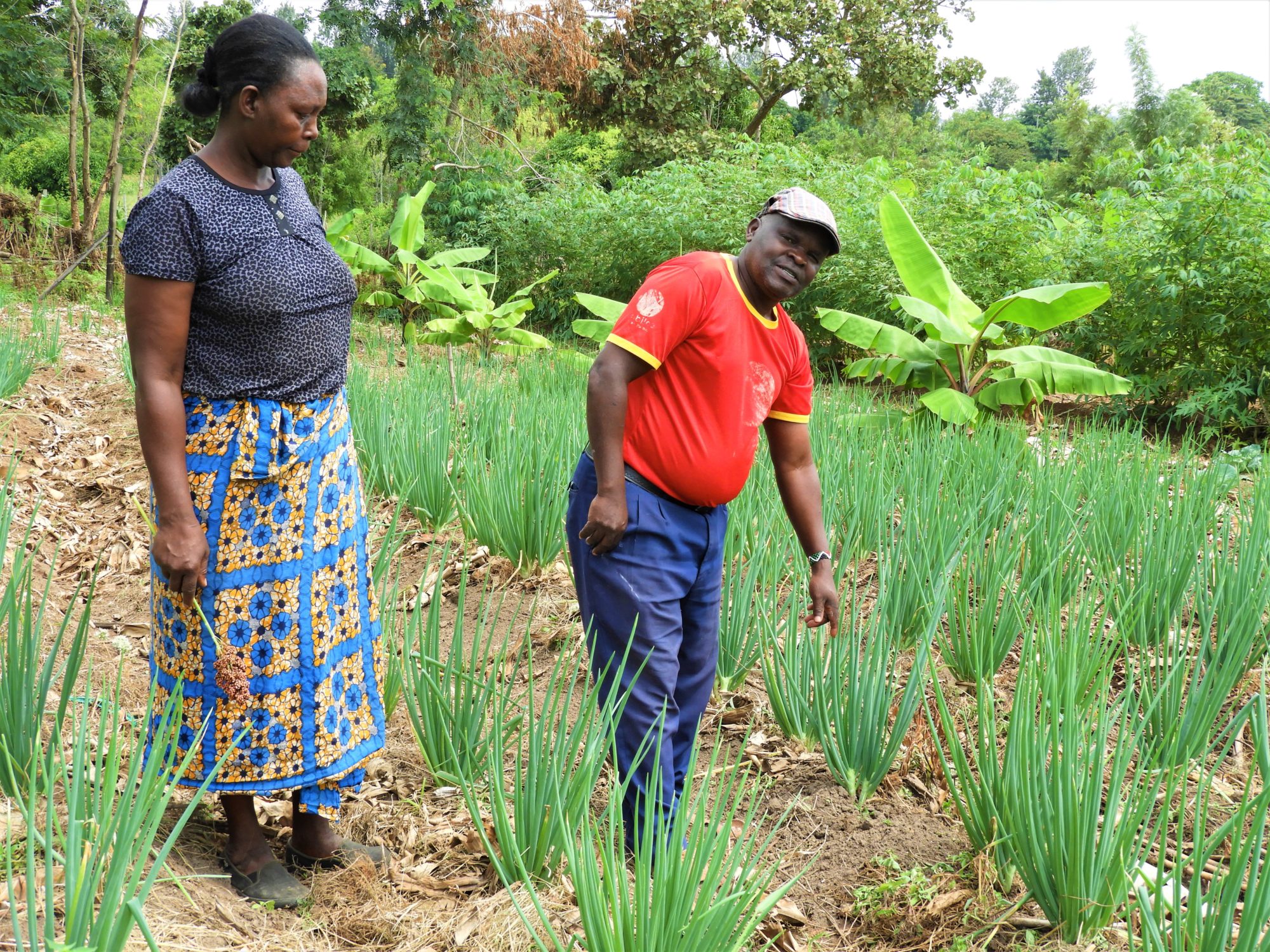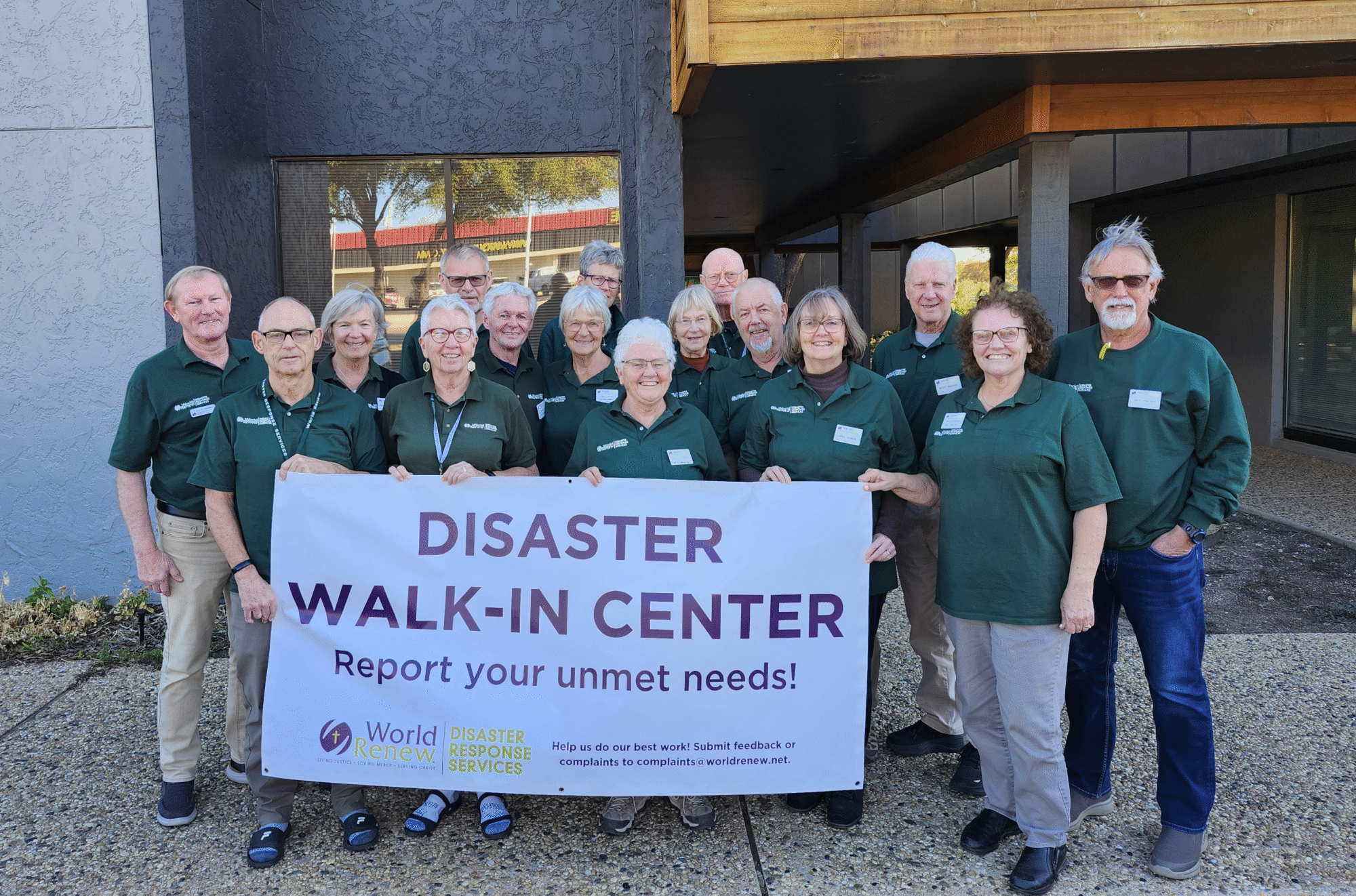A Kenyan Farmer’s Journey to a Bountiful Harvest
“I am glad that I learnt about conservation agriculture. My land is now productive. I am a happy mother who is able to provide for my family with a variety of foods that are healthy and nutritious. I meet my household needs and I am able to serve God and our church with what I have produced from my farm. I have made significant income and with it I have managed to construct a permanent house. Thank you for holding my hand, showing me the way and walking with me to achieve my dreams.’’ 一 Lydia

Lydia Wanjiru has learned not to put all her proverbial eggs in one basket. Thanks to training in conservation agriculture, through World Renew partner, ADS Mount Kenya, the 50-year-old farmer saw huge gains after she began to diversify her crop production.
Crop diversification is the practice of cultivating more than one variety of crops belonging to the same or different species in a given area in rotations. By growing a variety of crops, small farmers like Lydia and her husband, Francis Waweru, reap benefits such as improved soil fertility, better pest and disease control, and yield stability. But crop diversification is just one element of conservation agriculture.
Conservation agriculture is a way of farming that emphasizes minimal soil disturbance, the use of permanent soil cover, and crop rotations and associations in order to ensure land is productive for years to come. This also helps farmers to better cope with the increasing tendency of erratic and unpredictable weather.

Before Lydia joined the ADS Mount Kenya program at the end of 2016, she had been growing maize, beans and fifty banana plants on soil that was sandy and that often went with very little rainfall. Her crops were failing and the mother of six was frustrated.
In 2018, following the advice of program staff, Lydia made the decision to diversify her crops by switching to drought-tolerant cassava and sorghum. She also increased her banana crop to another hundred plants. In addition, she applied mulch made from organic matter to ensure the soil around her crops remained healthy.
Lydia’s efforts paid off. Her crops have been doing well, even during the seasons when there is inadequate rainfall. And, Lydia has since diversified her crop production even more, by integrating high-value crops such as the upland arrowroot, green leafy vegetables, and onions. She has also added to her vegetable production by purchasing an ultraviolet-treated vertical garden bag for her kitchen garden and by making other vertical gardens using gunny sacks and containers.
Today, Lydia shares that by practicing conservation agriculture she is now able to not only feed her family an assortment of nutritious fruits and vegetables, but she also has surplus that she can sell to help support her family, including contributing to the building of the

family’s permanent home, and paying for her children’s school feesーan expense that she had previously struggled to cover.
Lydia has not only diversified the crops she grows, but has also diversified how she earns income and what she feeds her family. In addition to selling her crops to her neighbours and to local traders, Lydia dries cassava, arrowroot, bananas and sorghum and then has the dried goods milled into flour which she sells to her neighbours. She also uses the flour to make healthy and nutritious porridge for her family.
Lydia now encourages women in her local church to practice conservation agriculture. She not only shares the knowledge she has gained on the benefits of conservation agriculture, but also the blessings. Recently, she sold some spring onions from her kitchen garden, several bunches of bananas, and some cassava at church and contributed the proceeds to a church project.







